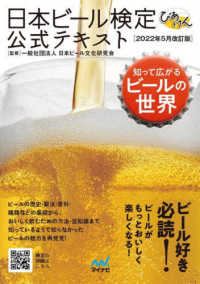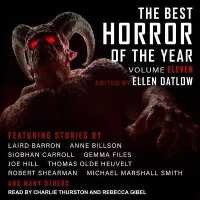Full Description
Sanskrit Debate: Vasubandhu's 'Vīmśatikā' versus Kumārila's 'Nirālambanavāda' illustrates the rules and regulations of classical Indian debate literature (pramānaśāstra) by introducing new translations of two Sanskrit texts composed in antithesis to each other's tradition of thought and practice. In the third century CE, Vasubandhu, a Buddhist philosopher-monk, proposed that the entire world of lived experience is a matter of mind only through his Vīmśatikā (Twenty Verses). In the seventh century CE, Kumārila, a Hindu philosopher-priest, composed Nirālambanavāda (Non-Sensory Limit Debate) to establish the objective reality of objects by refuting Vasubandhu's claim that objects experienced in waking life are not different from objects experienced in dreams. Kumārila rigorously employs formal rules and regulations of Indian logic and debate to demonstrate that Vasubandhu's assertion is totally irrational and incoherent.
Vīmśatikā ranks among the world's most misunderstood texts but Kumārila's historic refutation allows Vīmśatikā to be read in its own text-historical context. This compelling, radically revolutionary re-reading of Vīmśatikā delineates a hermeneutic of humor indispensable to discerning its medicinal message. In Vīmśatikā, Vasubandhu employs the form of professional Sanskrit logic and debate as a guise and a ruse to ridicule the entire enterprise of Indian philosophy. Vasubandhu critiques all Indian theories of epistemology and ontology and claims that both how we know and what we know are acts of the imagination.
Contents
Contents: Classical Indian Philosophy - Vimśatikā and Auto-Commentary in Text-Historical Context - Translation of Vimśatikā and Auto-Commentary - Nirālambanavāda in Text-Historical Context - Translation of Nirālambanavāda - The Verdict.








